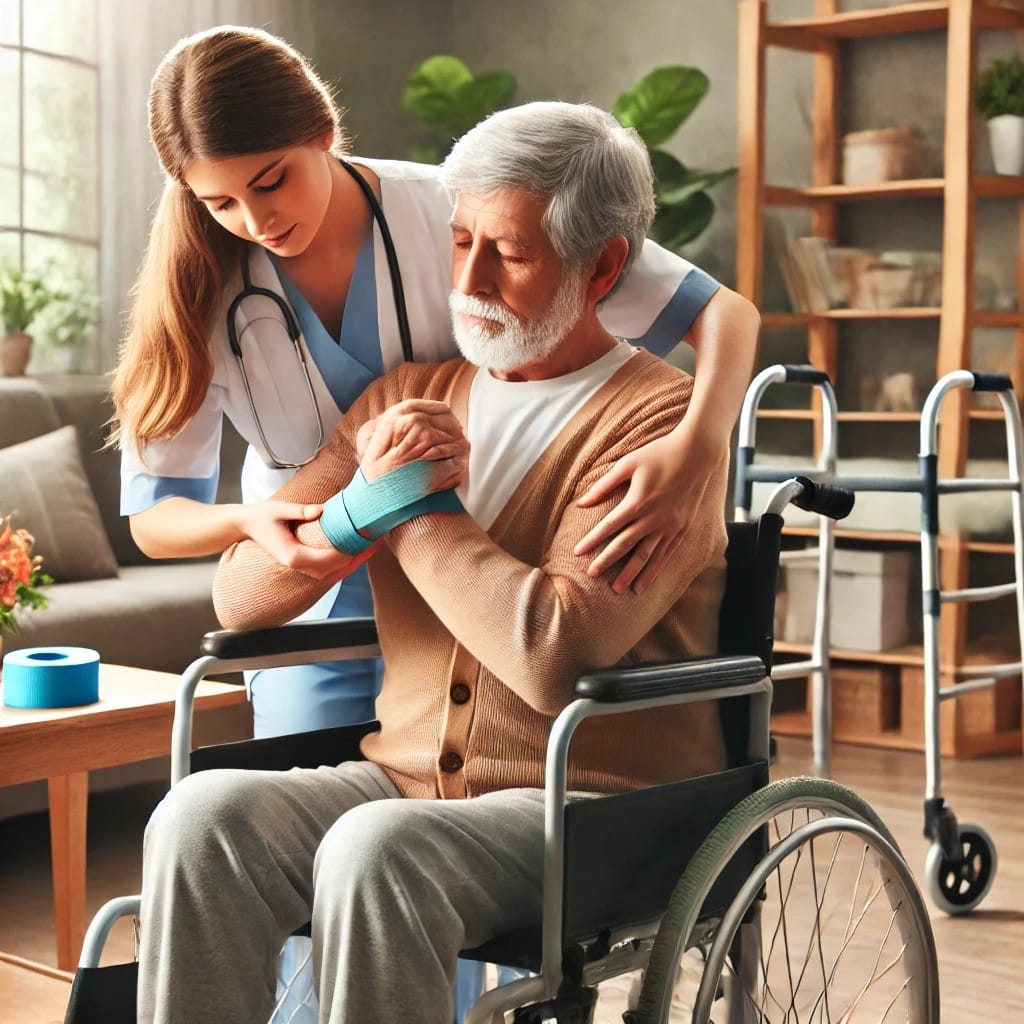
Caring for Stroke and Paralysis Patients at Home: A Complete Guide
Caring for Stroke and
Paralysis Patients at Home: A Complete Guide
A stroke or paralysis diagnosis
can be life-altering, not just for the patient but also for their loved ones.
Recovery and rehabilitation take time, patience, and dedicated care. While
hospitals and rehabilitation centers provide critical early-stage treatment,
long-term care at home plays a crucial role in improving the patient's quality
of life.
Providing proper stroke and
paralysis care at home ensures comfort, emotional support, and a personalized
approach to recovery. In this blog, we’ll explore the best practices, essential
care services, and helpful tips for families supporting a loved one through
this journey.
Why Home Care is Important
for Stroke and Paralysis Patients
Recovering from a stroke or
adjusting to paralysis can be overwhelming. Home care offers several benefits,
including:
✅ Familiar Environment – Reduces
stress and promotes emotional well-being.
✅ Personalized Care – Tailored
support based on the patient's specific needs.
✅ Family Involvement – Allows
loved ones to be actively engaged in care and recovery.
✅ Lower Risk of Infections –
Reduces exposure to hospital-acquired infections.
✅ Cost-Effective – In many cases,
home care is more affordable than extended hospital stays.
Key Aspects of Stroke &
Paralysis Home Care
1. Medical & Nursing
Care
Many stroke survivors require
continuous medical supervision to prevent complications. A trained nurse or
caregiver can assist with:
Ø
Medication management and administration
Ø
Monitoring vital signs (blood pressure, sugar
levels, etc.)
Ø
Wound care and infection prevention
Ø
Managing secondary conditions like diabetes or
high cholesterol
2. Physiotherapy &
Rehabilitation
Physical therapy is essential for
regaining strength, mobility, and independence. A professional physiotherapist
can help with:
Ø
Strength-building exercises for affected limbs
Ø
Range-of-motion therapy to prevent stiffness
Ø
Fall prevention and balance training
Ø
Use of mobility aids like walkers or wheelchairs
3. Speech & Swallowing
Therapy
Some stroke patients struggle with
communication or swallowing food. Therapy can assist with:
Ø
Speech exercises to regain communication skills
Ø
Swallowing techniques and diet modifications
Ø
Cognitive exercises to enhance memory and focus
4. Assistance with Daily
Activities
Ø
Patients with paralysis or mobility challenges
often need help with:
Ø
Bathing, dressing, and grooming
Ø
Feeding and meal preparation
Ø
Toileting and incontinence care
5. Emotional & Psychological Support
Stroke recovery can be mentally
challenging. Patients may experience frustration, depression, or anxiety.
Support strategies include:
Ø
Encouraging positive communication and social
interaction
Ø
Counseling sessions for emotional well-being
Ø
Engaging in hobbies or activities to boost
morale
6. Home Modifications for
Safety
A few adjustments can make the
home more accessible and safe:
Ø
Installing grab bars in bathrooms and hallways
Ø
Removing tripping hazards like loose rugs
Ø
Adjusting furniture for wheelchair accessibility
Ø
Adding anti-slip flooring in high-risk areas
Tips for Family Caregivers
If you're caring for a stroke or
paralysis patient at home, here are some practical tips to make the process
smoother:
✔ Be Patient and Encouraging –
Recovery takes time, and motivation plays a big role.
✔ Promote a Healthy Lifestyle –
Nutritious meals and light exercise aid recovery.
✔ Stick to a Routine –
Consistency in therapy and medication improves outcomes.
✔ Ensure Safety First – Minimize
fall risks and keep emergency numbers handy.
✔ Take Care of Yourself –
Caregiver burnout is real; don’t hesitate to seek help.
When to Seek Professional
Home Care Services
While family members can provide a
lot of support, professional home nursing and therapy services can
significantly enhance recovery. Consider professional help if:
Ø
The patient requires specialized medical
attention.
Ø
Mobility challenges make it difficult to provide
care alone.
Ø
You notice signs of depression, anxiety, or
withdrawal.
Ø
Managing daily activities becomes overwhelming.
Final Thoughts
Caring for a stroke or paralysis
patient at home requires dedication, but with the right approach, you can help
your loved one regain independence and improve their quality of life. Whether
you provide care yourself or seek professional assistance, the key is to create
a supportive and encouraging environment.
If you or someone you know needs
expert home care for stroke or paralysis, consider consulting professional
caregivers who specialize in rehabilitation and long-term support.
Every step, no matter how small,
brings progress toward recovery.